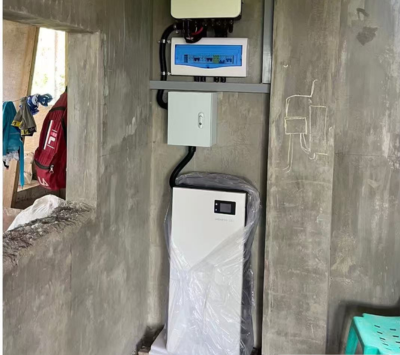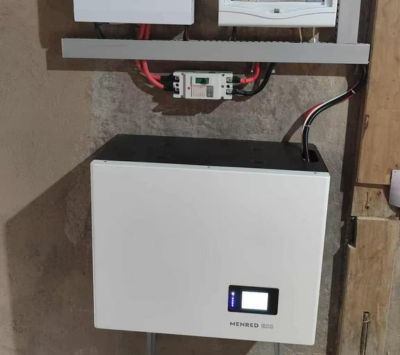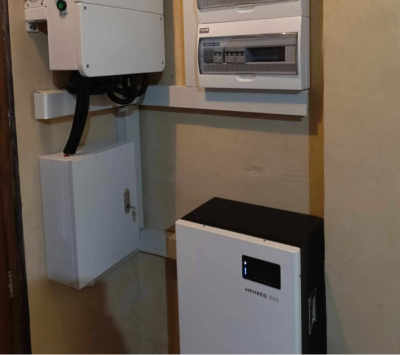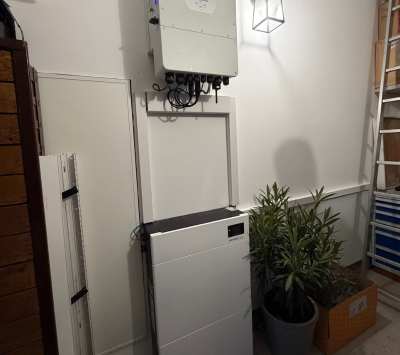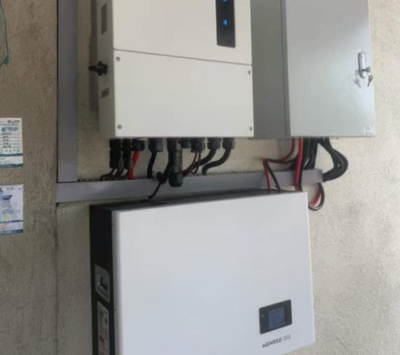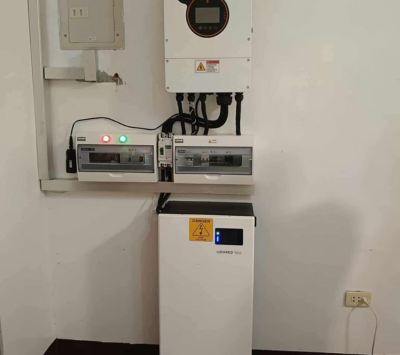Introduction
Sustainable living is no longer just a trend — it’s a necessity. With rising energy costs, concerns about climate change, and the need for reliable power sources, renewable energy systems are increasingly being adopted across the globe. This article explores a real-world case study where MENRED ESS’s advanced three-phase inverter battery system was deployed in a customer’s home in Laos. The system featured two LFP.6144.G3 battery units, each with 18.43 kWh capacity, and two inverters that delivered sustainable, uninterrupted power. Let’s dive into how this technology helped create a self-sufficient, eco-friendly home.
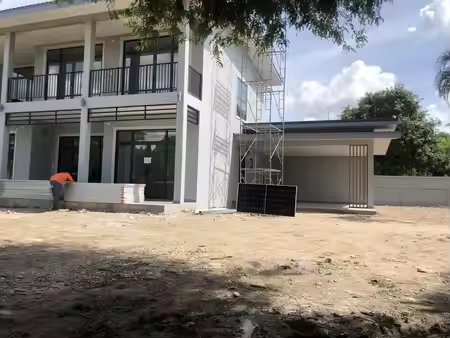
About MENRED ESS
Before diving into the details of the Laos case study, it’s important to understand the role of MENRED ESS in the renewable energy space. MENRED ESS is a global leader in providing energy storage solutions and smart energy management systems for residential, commercial, and industrial purposes. They focus on leveraging solar power, energy inverters, and advanced battery technologies to offer sustainable, cost-effective solutions to reduce dependence on the traditional grid.
Their solutions are designed to help homeowners like the one in Laos achieve energy independence, reduce electricity bills, and minimize environmental impact. With products like the LFP.6144.G3 battery and three-phase inverters, MENRED ESS is at the forefront of modern renewable energy systems.
The Importance of Three-Phase Inverter Battery Systems
Understanding why MENRED ESS chose to use three-phase inverters paired with LFP.6144.G3 battery units in this Laos project is key to grasping the project’s success.
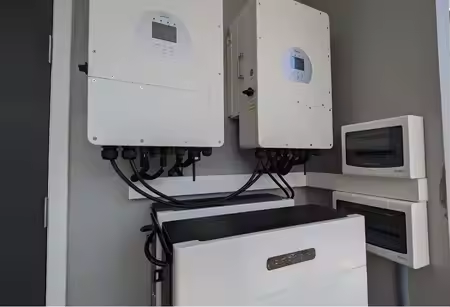
1. Three-Phase Inverters
Three-phase inverters convert the DC (direct current) produced by solar panels or stored in batteries into AC (alternating current), which powers everyday appliances. Unlike single-phase inverters, which are ideal for smaller setups, three-phase inverters provide a stable, balanced energy output, crucial for homes with higher energy needs. The system’s efficiency in converting and distributing energy results in lower energy losses, making it an essential component for large households or off-grid applications.
2. LFP.6144.G3 Battery Units
These Lithium Iron Phosphate (LiFePO4) batteries are known for their safety, longevity, and energy efficiency. Each LFP.6144.G3 unit comes with a capacity of 18.43 kWh, making them a high-capacity storage solution ideal for homes that require constant power availability. Their durability and ability to store excess solar power for later use make them an integral part of a reliable off-grid power system.
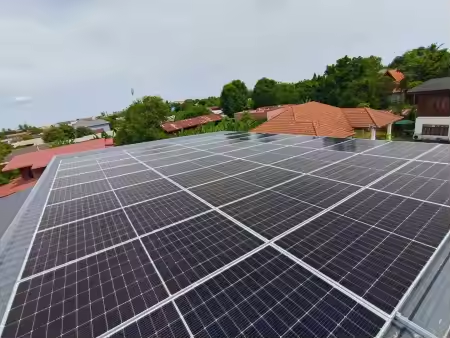
The Laos Customer Case Study
In a rural region of Laos, where access to the national electricity grid was unreliable and diesel generators were costly to run, one family sought a more sustainable energy solution. MENRED ESS designed and installed a custom solution using two LFP.6144.G3 batteries and two three-phase inverters to create a fully self-sufficient home that didn’t depend on grid power. This setup allowed the family to achieve energy independence and drastically reduce their reliance on non-renewable energy sources.
Challenges the Customer Faced
- Unreliable power supply: Like many rural homes in Laos, the family experienced frequent power outages and inconsistent grid power.
- High diesel costs: To compensate for grid unreliability, they used diesel generators, which were expensive to maintain and operated with high environmental costs.
- Desire for sustainability: The family wanted to move towards a more eco-friendly lifestyle, reducing their carbon footprint and reliance on fossil fuels.
MENRED ESS’s Custom Energy Solution
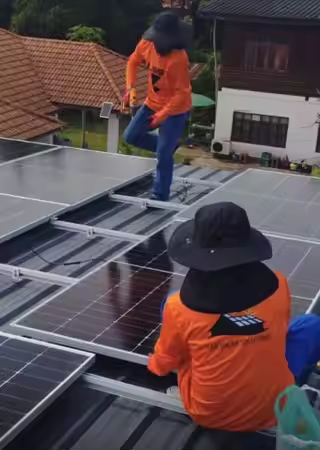
To meet these challenges, MENRED ESS designed a system focused on two main elements: solar energy generation and advanced energy storage and conversion technology.
1. Solar Panel Installation and Inverter System
The first step was installing rooftop solar panels designed to capture the maximum amount of sunlight in Laos’ tropical climate. These solar panels were connected to two three-phase inverters, which efficiently converted the solar-generated DC power into AC power for home use. The dual inverter setup ensured consistent power distribution even during peak usage times.
2. High-Capacity Energy Storage: Two LFP.6144.G3 Batteries
To store the solar energy for later use, especially during the night or cloudy periods, MENRED ESS installed two LFP.6144.G3 battery units, with a combined capacity of 36.86 kWh. This allowed the family to store more than enough energy to meet their daily needs, including running major appliances such as air conditioners, refrigerators, and lighting systems.
The batteries also ensured that excess solar energy wasn’t wasted, making the system both eco-friendly and efficient. The LFP.6144.G3 batteries provided consistent power for the home, ensuring no disruptions even during periods of low sunlight.
3. Energy Management System
An energy management system (EMS) was also implemented, allowing the family to monitor their energy production, usage, and storage in real time. This not only optimized energy usage but also empowered the homeowners to make more informed decisions about their power consumption.
Outcomes of the MENRED ESS System
The results of the project have been nothing short of impressive, and the Laos family quickly began reaping the rewards of their new energy system.
1. Energy Independence
The most significant outcome was complete energy independence. The home no longer relies on the unstable grid or diesel generators for power. With enough solar energy and battery storage, the family enjoys uninterrupted electricity around the clock.
2. 24/7 Power Availability
With the 36.86 kWh of battery storage and a dual inverter system, the home now has a continuous supply of power, regardless of the time of day or weather conditions. This means that even during prolonged cloudy periods, the stored energy in the LFP.6144.G3 units is enough to keep the household running without any interruptions.
3. Cost Savings
The family has seen a drastic reduction in energy-related costs. No longer dependent on costly diesel generators or unstable grid electricity, their monthly expenses have dropped significantly. In fact, the savings on fuel and electricity bills are expected to cover the initial investment in the solar and storage system within a few years.
4. Environmental Benefits
By reducing their reliance on fossil fuels, the family has significantly lowered their carbon footprint. Their shift to a renewable energy system aligns with global efforts to reduce greenhouse gas emissions and mitigate climate change.
 Key Benefits of Using a Three-Phase Inverter Battery System
Key Benefits of Using a Three-Phase Inverter Battery System
This case study showcases several critical benefits of using a three-phase inverter battery system for sustainable home power:
- Reliability: The combination of three-phase inverters and high-capacity battery storage ensures a continuous, stable energy supply, even during peak demand or unfavorable weather conditions.
- Energy Efficiency: By using advanced technology like the LFP.6144.G3 batteries, the system efficiently stores and utilizes solar power, minimizing energy waste.
- Cost Effectiveness: With reduced reliance on grid power and no need for diesel generators, the system delivers significant savings in the long term.
- Environmental Sustainability: Switching to solar energy and high-efficiency battery storage drastically reduces carbon emissions, making it an environmentally friendly solution.
Conclusion
The MENRED ESS project in Laos demonstrates the power and potential of three-phase inverter battery systems in creating sustainable homes. With two LFP.6144.G3 battery units and two inverters, MENRED ESS provided the family with a customized solution that delivered 24/7 power, reduced costs, and minimized their environmental impact. This case study underscores how advanced renewable energy solutions can be tailored to meet the specific needs of homeowners, enabling them to achieve energy independence and long-term sustainability.
By adopting MENRED ESS’s advanced energy system, this Laos family has not only reduced their reliance on traditional energy sources but also set a powerful example for how renewable energy can transform homes and lives.

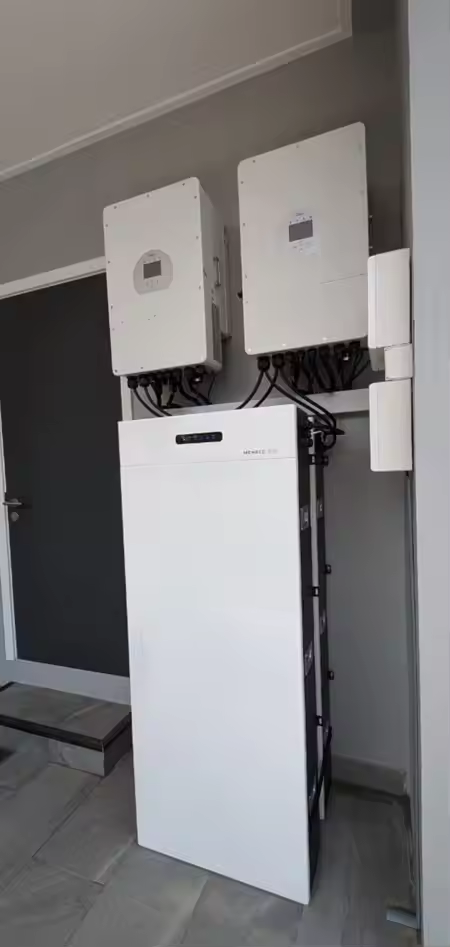 Key Benefits of Using a Three-Phase Inverter Battery System
Key Benefits of Using a Three-Phase Inverter Battery System